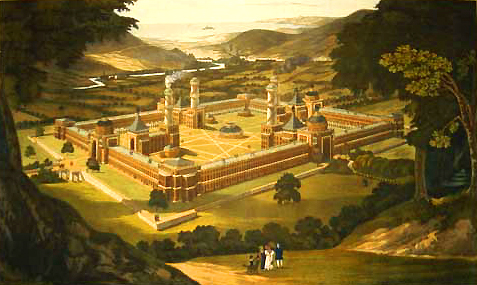
I have long had a vision for how the world we live in can be organized in a very different way than things are now. The way that I have been envisioning this is something that I see as being more respectful and honoring of life in general, and in particular the needs and desires of human beings. I figure that it can be helpful for me to sketch out how I see it as being possible for the world to be arranged. Recently I have been inspired and encouraged by
the work that Miki Kashtan has been doing in this area, she has really helped me to breathe new life into my thinking here, and I am delighted to say that I feel a sense of companionship as I elaborate here on what I see as to how a new world could look like. What I say here is a brief outline of this ideal world that I would like to live in.
A needs-based, willingness-based, gift-economy-based social structureWithin this new society people would have different ways of viewing themselves and their actions, different assumptions and understandings about social relationships, different values that are prioritized and emphasized in how they live out in the world, different ways of organizing and coordinating affairs among groups of people, and on top of all this a whole new overall global structure for humanity in general. Without referencing any kind of pre-existing philosophy or ideology, I am simply calling this a “needs-based, willingness-based, gift-economy-based social structure”.
Small-scale face-to-face groups of peopleThe primary social unit in the new society would be the small-scale face-to-face group of people. This would be a group of no more than ten people altogether, and these groups would be the social basis for the whole social structure. Most of people’s daily lives would center around the various small groups that they are a part of. There would be small groups for people’s work-places, small groups for people’s living arrangements (you could call these “families”, or not), small groups based around people’s shared interests, hobbies, recreational activities, passions, beliefs, what-have-you.
Likewise, when conflicts emerge between people, small groups of people will form to constructively address these conflicts. Small groups would meet to ensure common understanding and to make decisions and come to agreements together. Most importantly, the people within these groups would all feel a sense of authentic heart-felt connection with each-other. This is why I see it as being essential for these groups to be small as well as meeting face-to-face.
Authentic heart-felt connectionThe basic social glue for society would be people genuinely caring for each-other and feeling a real sense of belonging, understanding, and appreciation for one-another. Various personal and inter-personal tools exist that can be utilized to facilitate this sense of connection between people. The key thing is that individuals and groups of people routinely check in with themselves to see what the current status is for this sense of connection, since the nature of it all is very fluid and always changing. If people see that the feeling of connection is not there or is weak for some reason, then this will be identified and steps would be taken to restore this connection. Within the small groups special meetings will routinely take place to check-in on the sense of connection within the relationships of the group. These meetings will be separate and distinct from whatever other meetings exist to address more organizational and logistical concerns.
Self-responsibility and willingnessAn underlying common understanding within this society would be that each person is ultimately responsible for their own thoughts, feelings, and actions. In other words, each person makes their own choices and decisions about whatever it is that they do, and correspondingly, they each take responsibility for it. Everybody understands that nobody “makes” anybody else do anything – that everything is a choice.
With that all being understood, a second operating assumption also exists, and that is that all interactions and agreements between people take place without coercion and out of a sense of genuine willingness. That is, that people do all that they do because they are willing to, better yet, because they want to, and not out of a sense of pressure, guilt, duty or obligation. Everybody will make an effort to see and appreciate the needs behind everything that they do and will have their own desire to meet these needs be their motivating drive behind the choices that they make.
A needs-based paradigmOne of the basic ideas behind the practice of
Nonviolent Communication (“NVC”) is that of seeing the underlying
fundamental human needs behind everything that people do or desire. Fundamental needs are distinct from strategies to meet needs because needs are finite and universal to all people everywhere, whereas strategies to meet needs are infinite and specific to particular people and situations. This way of looking at people and actions will be a common underlying paradigm within this new society. Because of this approach, whenever people become aware that they are attached to a particular strategy, they will then take the time to identify and appreciate the needs that are underlying and associated with that strategy. By doing this, space can then be made for more strategies available to meet the different needs at play.
Giving gifts and sharingAnother foundational assumption for this society would be that all of the work that is done in this world, everything that one contributes to others, is done out of
the spirit of giving a gift. When one gives a gift one has no attachment or expectation of receiving anything from anybody in return. One gives a gift simply to do something to contribute to the well-being and happiness of others. All giving will be done in this way.
Along with gift giving, a corresponding assumption would be that of
sharing and
non-possession. In other words, everything would be “ours”, not “mine” and “yours”. When people’s needs for privacy, respect, acknowledgement, ease of access, reliability, or trust (to name a few needs) comes up, then these needs are identified and spoken to others in the relevant groups, and strategies and agreements can be found to meet these needs. All of this would be done out of a sense of everyone’s needs being important, where everybody’s needs are held in common, where resources are available to all to help meet everyone’s needs.
Coordination and cooperationWe are blessed to live in a world today where modern communications technologies, computers, databases and internet systems make it possible for enormous numbers of people and resources to be both accounted for and moved from place to place. These already-existing systems and structures can be used in this new world that I am describing, in a new way.
Rather than accounting for and moving someone’s “property” with the expectation of “payment” in return, instead resources are moved from place to place according to people’s needs & requests, and where there are people present who are willing & able to work with these resources to meet the needs expressed. In a world of billions of people, this all would require systems of sophisticated coordination & communication, which luckily we already have the capacity for.
Bottom-up forming of agreementsAs I said earlier here, the basic social unit within this new society would be the small group, whether it is in the workplaces, the living arrangements, or other activities. When it is found helpful to have common understandings and agreements that include more people than just a small group, then groups can communicate with each-other and work together. Depending on the situation, the needs at play, the resources available, the willingness of the people present, and other factors, groups can form small networks of small groups to meet needs. Or, larger and more formalized federations of small groups can be formed to meet needs in more ongoing and long-term ways. Networks and federations of small groups could be organized heavily relying upon computer and internet technology to facilitate communication, shared understandings and common agreements. Or, small groups could decide upon having mandated delegates from within their groups going out to meet with other small groups, or meetings with other mandated delegates from other groups, to come to common understandings and agreements together.
The key thing here is that all of the decisions and agreements made concerning larger bodies of people stem from the smaller groups of people, and that these groups of folks have within them a solid sense of connection and mutual understanding with each-other. The larger organizational structures that are created to meet needs can be dynamic, and the strategies that exist to meet needs are infinite, so permeating it all is a sense of openness, possibility, and creativity among everyone.
Keeping trackPart of having effective coordination & cooperation, and part of having effective group decisions & agreements, is making sure that everyone is aware of all that is going on. Therefore it would be important for everything to be kept track of, and for the information to be made available to all. Some of the things to be kept track of are: who is needing & requesting what, who is offering what, what resources are available, who is currently using what resources, what agreements are currently in place, what agreements are in the process of being created, as well as stuff like group schedules, timelines, inventories, etc. A total transparency and careful organization of all of this information would be available to everyone to support the smooth functioning of this society.
An invitationThere is a lot more that I can say here, and many more areas of life that could be addressed as well. I welcome your input, feedback, questions and suggestions on anything that I said here. My hope is that the general vision for a needs-based, willingness-based, gift economy-based social structure for the world can grow and expand.

